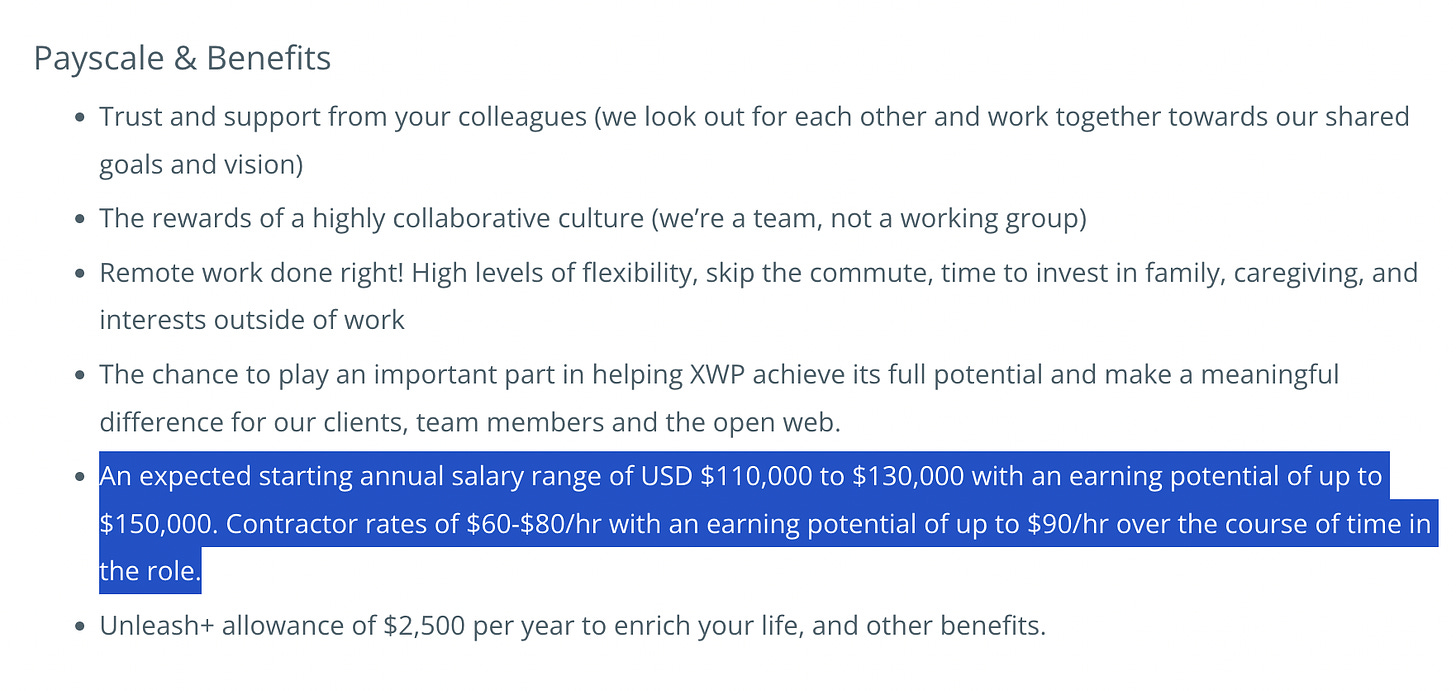004: The future of compensation is flexible (Part 2)
I'm not talking about "working from the beach".
Okay, here is my ultra-stripped-back take on employment:
As individuals, we invest time in building skills that the market values. Then, our compensation is a reflection of how we choose to sell those skills.
For all the reasons and more that I covered in last week’s newsletter - Part 1: The future of compensation is flexible - people are shifting from selling their skills and time through traditional employment to building a portfolio of work as independent contractors.
Continuing to Unlock Talent Pools
Similar to how pandemic-turned-remote companies experienced a sudden and vast widening in their talent pools, companies that embrace a fluid team and way of working (hire people part-time, to job share, as contractors, as fractional team members, etc.) will unlock another, often highly skilled, talent pool.
Here’s an example of what this looks like in a job description from XWP:
We’re moving toward a future of salary ranges in every job description. So far the conversation has largely focused on one piece of compensation - base salary. But, by listing ranges of traditional W2 Employees (in the U.S.) - we’re reinforcing out-of-date employment structures and missing out on an opportunity to design more inclusive systems that aren’t the same ol’ one-size-fits-all.
I believe the future of employment is flexible which necessitates flexible compensation.
Where to Start?: Map Total Compensation
Here’s a quick exercise to map out your current Total Compensation Matrix:
Keep reading with a 7-day free trial
Subscribe to Damn Good Job to keep reading this post and get 7 days of free access to the full post archives.




